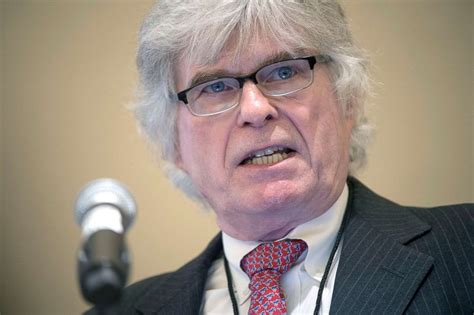A Quote by George Soros
An open society is a society which allows its members the greatest possible degree of freedom in pursuing their interests compatible with the interests of others.
Related Quotes
Each of us has interests which conflict the interests of everybody else... 'everybody else' we call 'society'. It's a powerful opponent and it always wins. Oh, here and there an individual prevails for a while and gets what he wants. Sometimes he storms the culture of a society and changes it to his own advantage. But society wins in the long run, for it has the advantage of numbers and of age.
Racists violate the principle of equality by giving greater weight to the interests of members of their own race when there is a clash between their interests and the interests of those of another race. Sexists violate the principle of equality by favoring the interests of their own sex. Similarly, speciesists allow the interests of their own species to override the greater interests of members of other species. The pattern is identical in each case.
The individual has totally different interests from the society, because the society has no soul. The society is soulless. And if you become too much a part of the society, it will reduce your soul also to a non-entity. Beware, before you have lost your whole opportunity. Don't be a slave. Follow society to the point you feel is needed, but always remain master of your own destiny.
The good of the family cannot be achieved without consideration of an individual's important interests. If those interests are urgent and weighty, they must become important interests of the family and can sometimes have priority in case of conflict. Sometimes, members must split their differences in compromise. Over time, yielding to others at some times must be balanced against getting priority for one's interests at other times.
Will a guaranteed annual wage kill incentive among the poor? If a man is given a certain amount of security, won't he quit working? Exactly the same contention could be made about the sons of the wealthy who are left large fortunes. Yet the evidence suggests that, given economic freedom, people will generally choose to do that which interests them most. It is up to society to see that these interests are widened and that too requires investment.
The essence of the modern state is that the universal be bound up with the complete freedom of its particular members and with private well-being, that thus the interests of family and civil society must concentrate themselves on the state. It is only when both these moments subsist in their strength that the state can be regarded as articulated and genuinely organized.
I want to burn with the spirit of the times. I want all servants of the stage to recognize their lofty destiny. I am disturbed at my comrades' failure to rise above narrow caste interests which are alien to the interests of society at large. Yes, the theatre can play an enormous part in the transformation of the whole of existence.
The notion that the UN is some sort of dispassionate body that, “does right” and just pursues everybody’s best interests is a fantasy. Each individual nation will be pursuing their best interests. That’s the normal behavior of nation-states. It shouldn’t surprise us, but neither should we go to them for permission to do what’s in our national interests.


































